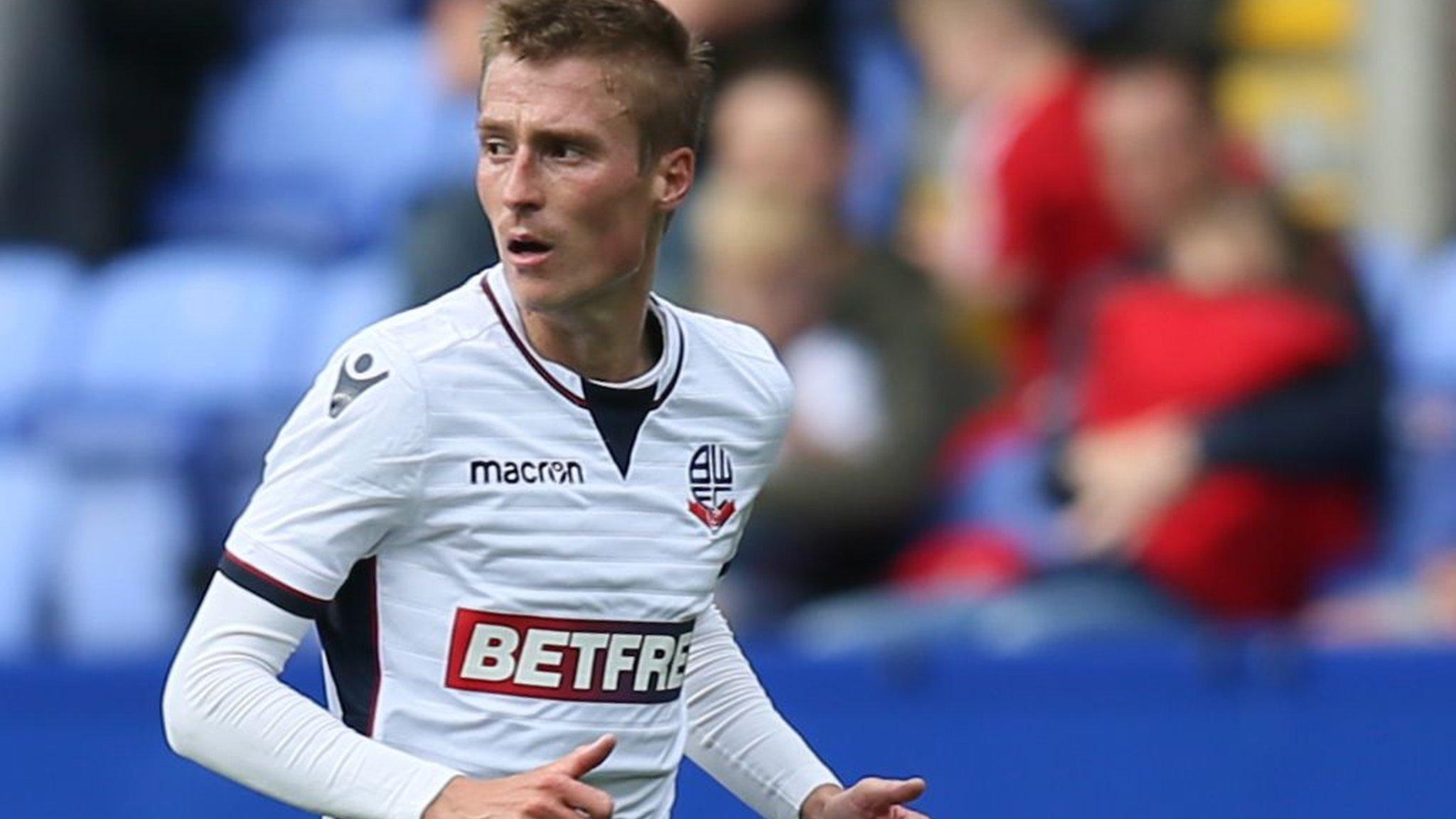Ex-Liverpool player Stephen Darby's fight with 'brutal disease'
- Published
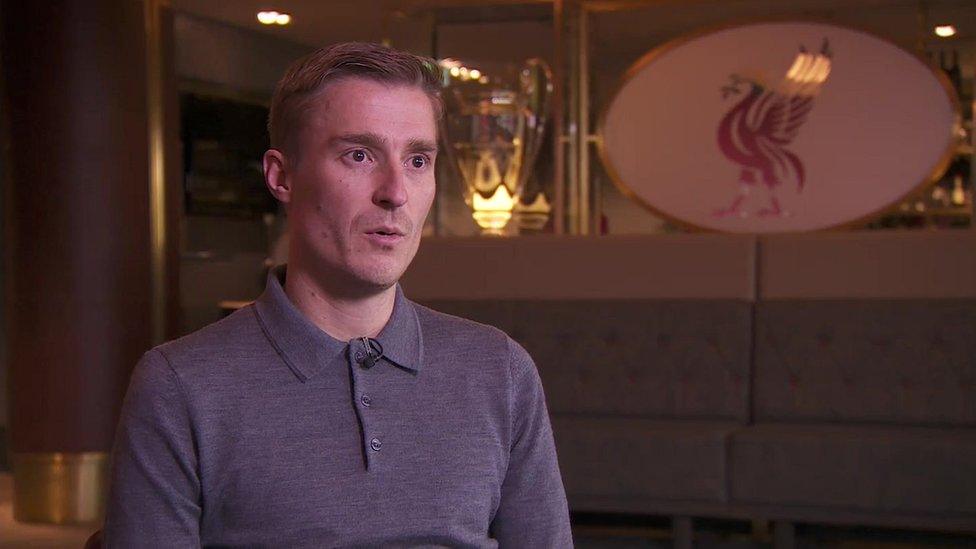
Stephen Darby has been diagnosed with motor neurone disease
An ex-Premier League player has spoken of how he is living with a "brutal disease" with a "terrible prognosis".
Stephen Darby, 31, retired last year after being diagnosed with motor neurone disease (MND).
Darby, who started his career with Liverpool before playing for Bradford and Bolton, wants to raise money for more research into the disease.
The 31-year-old is supported by his wife Steph Houghton, who is captain of the England women's football team.
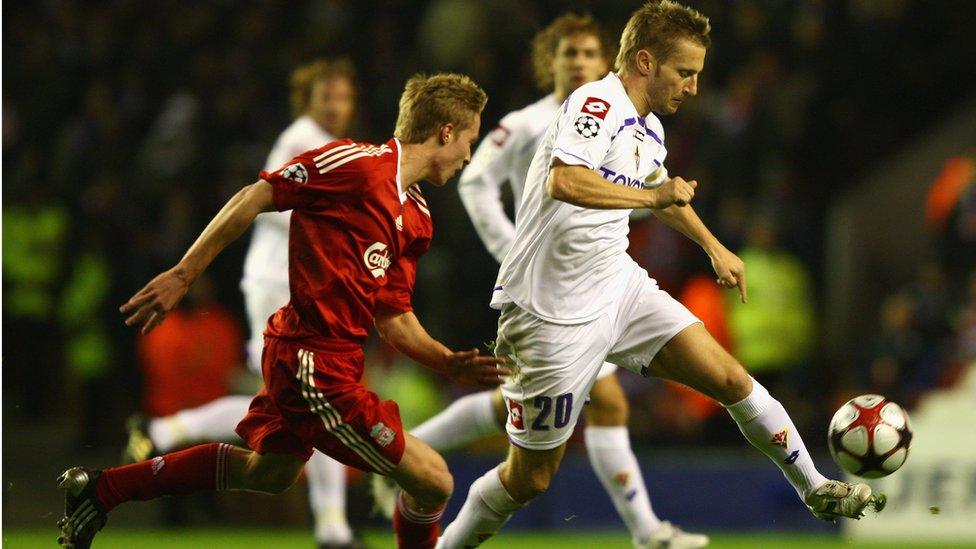
Stephen Darby played for Liverpool in the Champions League
Darby announced his retirement and revealed his condition in September 2018, 14 months after he joined Bolton from Bradford.
"Life expectancy is normally two to five years [and] a third of people die within a year. That's obviously quite tough. It's quite brutal," he said.
Darby described the diagnosis as a "shock" and said it was "quite tough to take on board" but he is now determined to raise funds for the Darby Rimmer MND Foundation.
The Liverpool-born footballer set up the charity with close friend and former soldier Chris Rimmer, who has also been diagnosed with MND - a degenerative condition that affects how nerves in the brain and spinal cord function.
Allow X content?
This article contains content provided by X. We ask for your permission before anything is loaded, as they may be using cookies and other technologies. You may want to read X’s cookie policy, external and privacy policy, external before accepting. To view this content choose ‘accept and continue’.
"It is a brutal disease with a horrible prognosis," he said.
His fundraising has already attracted support from ex-team-mates and former clubs who have backed initiatives including a match in July between Bradford and Liverpool .
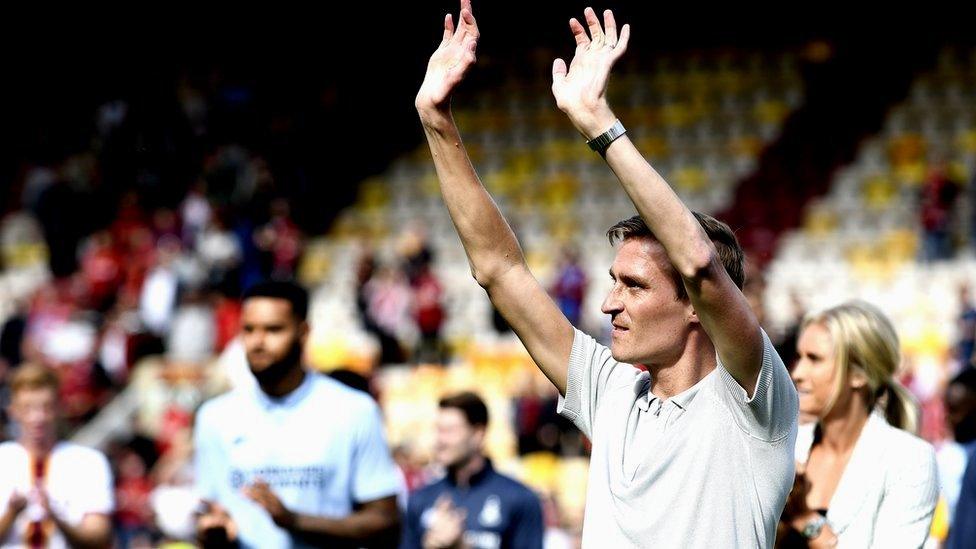
Liverpool played Bradford earlier this year to raise money for Stephen Darby's charity
Darby started his career with Liverpool's academy in 2008, playing three times in the Champions League and once in the Premier League, before signing for Bradford in 2012.
His first season with the Bantams included a run to the final of the League Cup and ended with promotion from League Two via the play-offs. He joined Bolton in 2016.
- Attribution
- Published15 July 2019
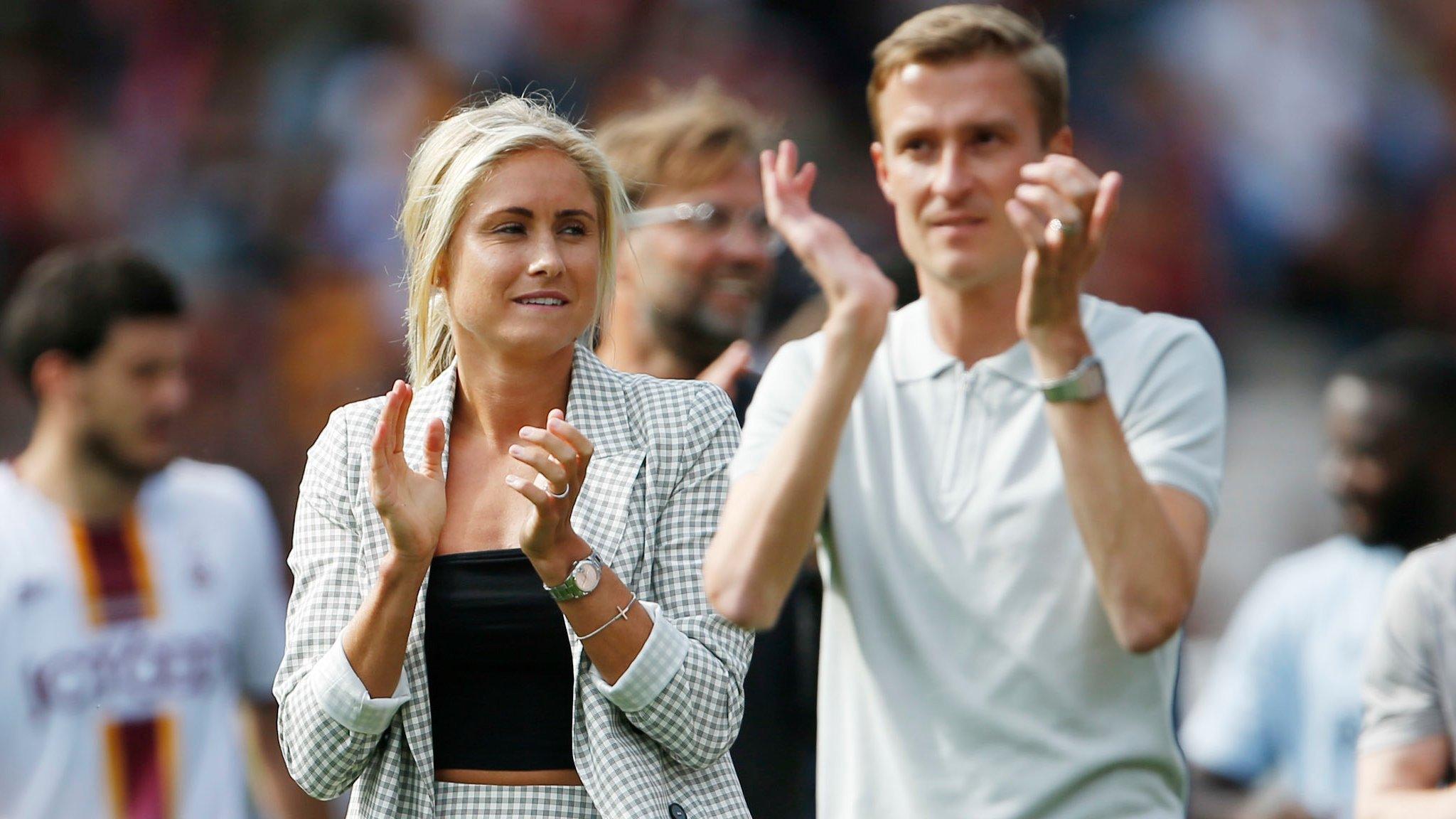
- Attribution
- Published21 September 2018
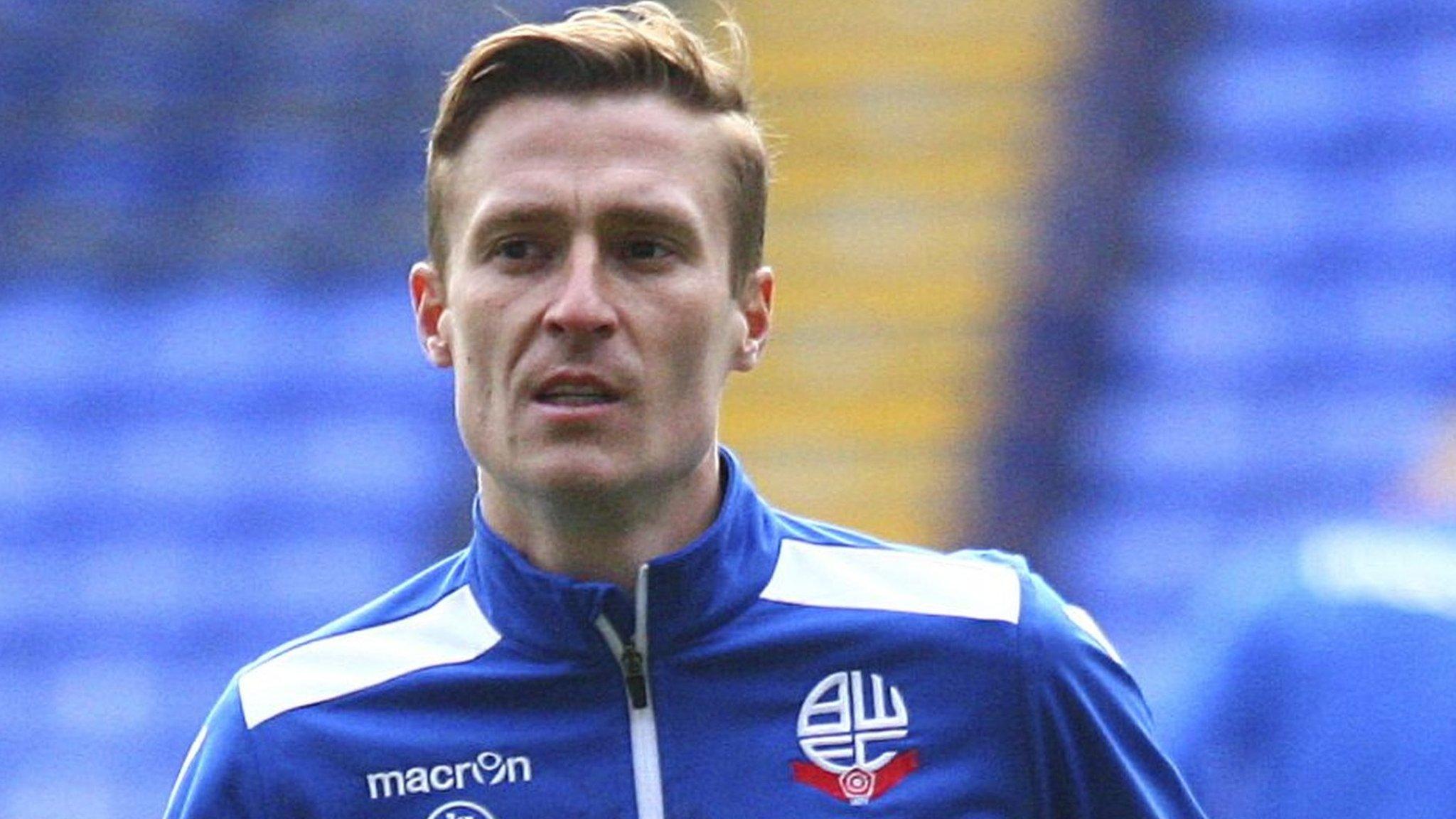
- Attribution
- Published19 September 2018
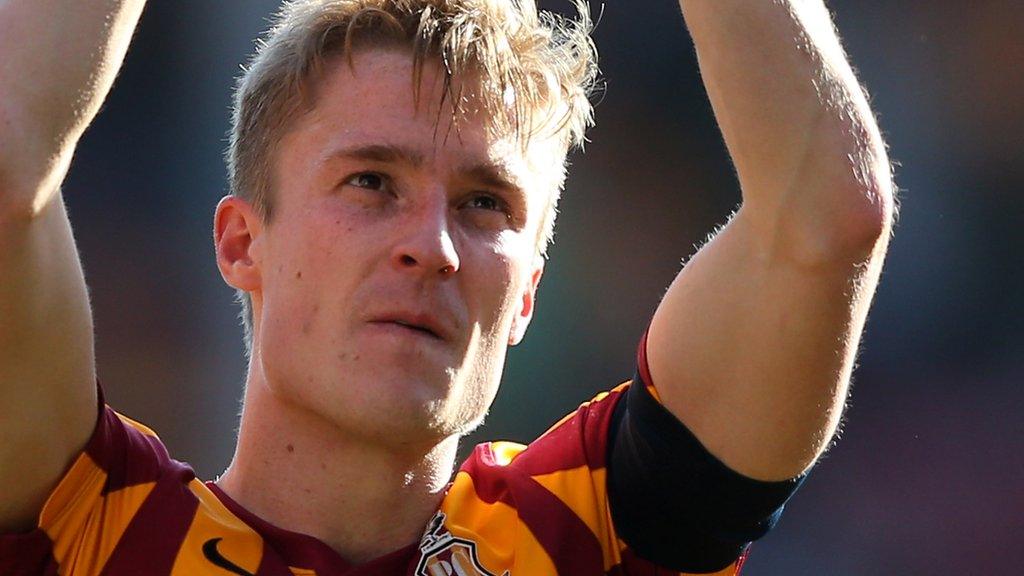
- Attribution
- Published18 September 2018
